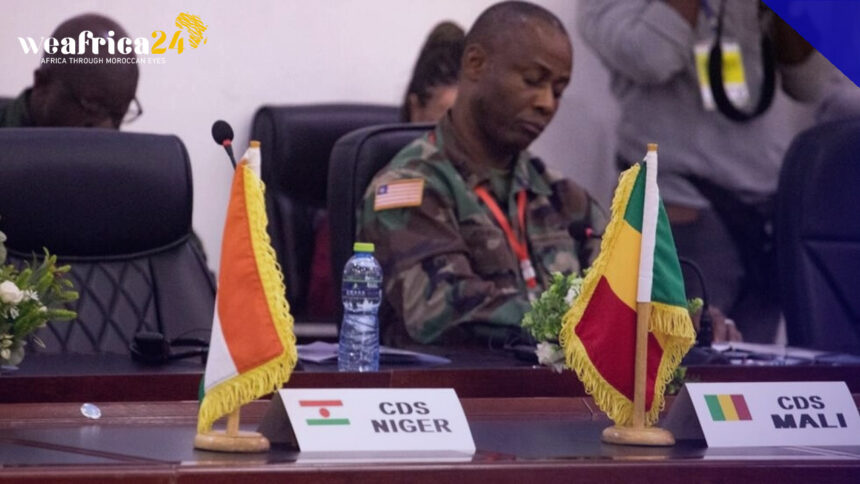Mali declared its withdrawal from the Economic Community of West African States (ECOWAS), along with Niger and Burkina Faso. What is known, and what questions linger about the implications of this decision?
Citizens and economic operators from these three countries, expressing concerns about the potential repercussions of the withdrawal, have prompted national authorities to provide initial reassurances. The Malian Minister of Foreign Affairs, Abdoulaye Diop, confirmed the country’s continued participation in the West African Economic and Monetary Union (UEMOA).
While the withdrawal of Mali, Niger, and Burkina Faso, although immediate in an announcement, is mandated to take a year according to community regulations. This period allows the three nations to fulfill their obligations to ECOWAS while preparing for the subsequent transition.
Mali’s primary economic asset, gold, constituting a quarter of its fiscal resources and over 75% of its exports, is expected to remain unaffected. These exports predominantly head to South Africa, Australia, and Switzerland. Therefore, no immediate fiscal impact is anticipated for the Malian state.
Remaining in UEMOA mitigates the consequences
Moreover, although Mali exits ECOWAS, it remains within the West African Economic and Monetary Union (UEMOA). This organization provides its eight members with the same privileges as ECOWAS, facilitating the free movement of people, and goods, and exempting merchandise from customs duties.
This implies no alteration in trade relations with key destinations such as Côte d’Ivoire or Senegal, which are primary recipients of Malian goods in West Africa, with ports frequently utilized by Malian entrepreneurs.
Malian residents in UEMOA member countries are unlikely to witness changes in their residency conditions, as long as Mali remains a member of this monetary space – a similar scenario applies to Niger and Burkina Faso.
Although Mali primarily imports within the sub-region, particularly from Senegal and Côte d’Ivoire, members of UEMOA, these imports are not expected to face additional taxes. Mali also relies on the UEMOA financial market for fundraising, with potential increases in interest rates, already on the rise during the transition period.
While the exit from ECOWAS may have a generally negative impact on the economies of Mali, Niger, and Burkina Faso, the impact is likely to be limited by their continued membership in UEMOA. The latter has not officially reacted to the ECOWAS withdrawal announcement. Political retaliation from other UEMOA member countries appears improbable, according to internal sources consulted by RFI.
Exiting the CFA Franc – a riskier prospect
However, Mali, Niger, and Burkina Faso have expressed their intention to sever all ties with France. The exit from the CFA Franc appears to be a likely next step, though significantly riskier. To achieve this, they would need to leave UEMOA, abandoning the commercial and human assurances provided by this space.
Economists studying this prospect highlight the necessity for these three countries to have sufficient foreign exchange reserves and robust institutional credibility if they embark on such a project. This is crucial to guarantee the value and long-term stability of any potential new currency. Currently, ECOWAS is working towards the planned exit from the CFA Franc zone and the establishment of a common single currency called the Eco.
ECOWAS also includes seven countries not members of UEMOA, such as Ghana, Gambia, Nigeria, and Guinea, with which exchanges are significant. However, Mali, Niger, and Burkina Faso may attempt to establish new bilateral agreements with these countries to avoid the reinstatement of border taxes.
Dissuasive for investors
An immeasurable consequence is the impact on investors. Economic stakeholders interviewed by RFI express doubt that the withdrawal from ECOWAS and the unpredictability of future decisions contribute to strengthening confidence or encourage anyone to invest in Mali, Niger, or Burkina Faso. This could have a direct and long-term negative impact on local businesses.
The National Council of Employers in Mali stated on Wednesday that its members are beginning to communicate their “concerns and suggestions,” which will be analyzed and shared with transitional authorities. The situation continues to unfold, with implications extending beyond economic realms into diplomatic and geopolitical spheres.







